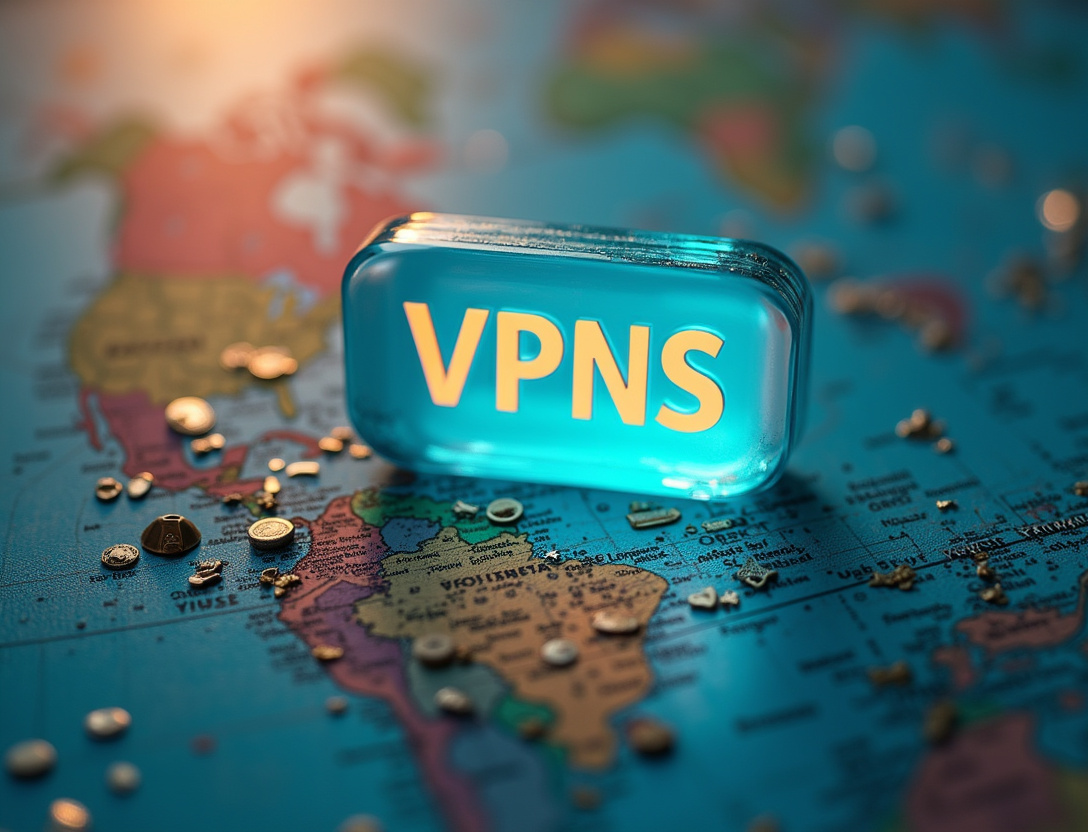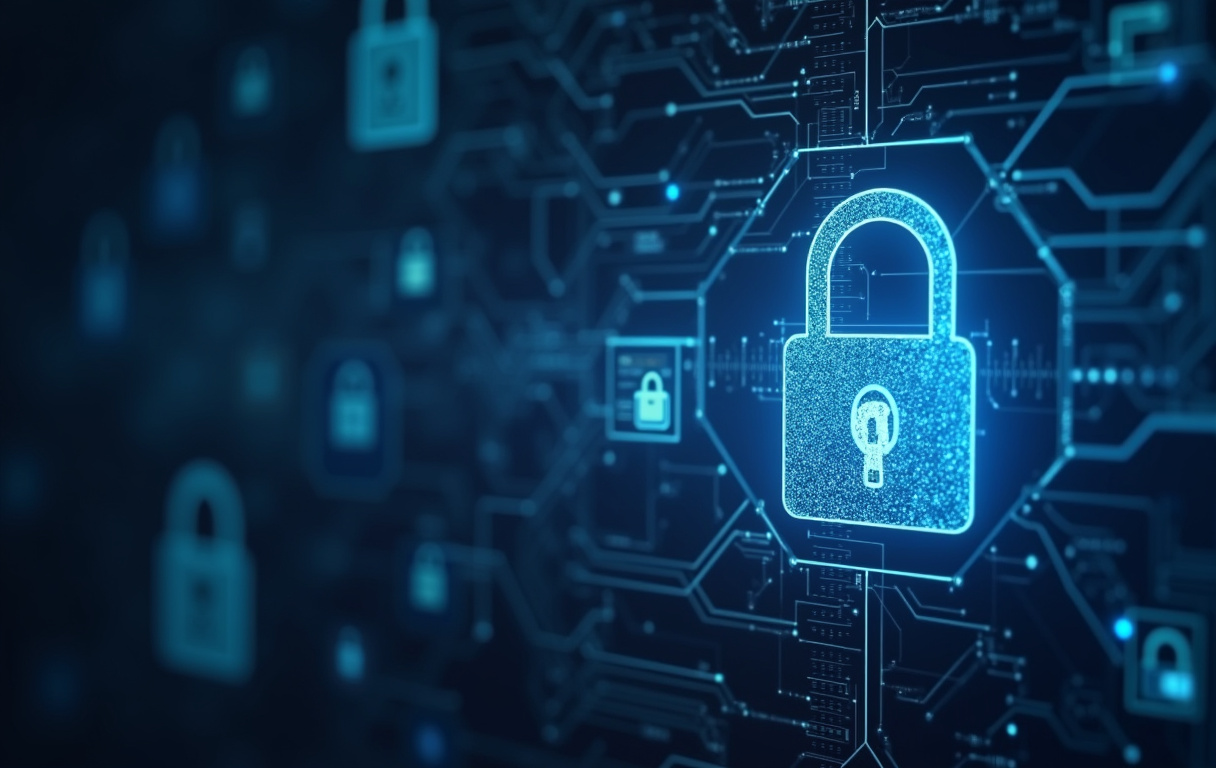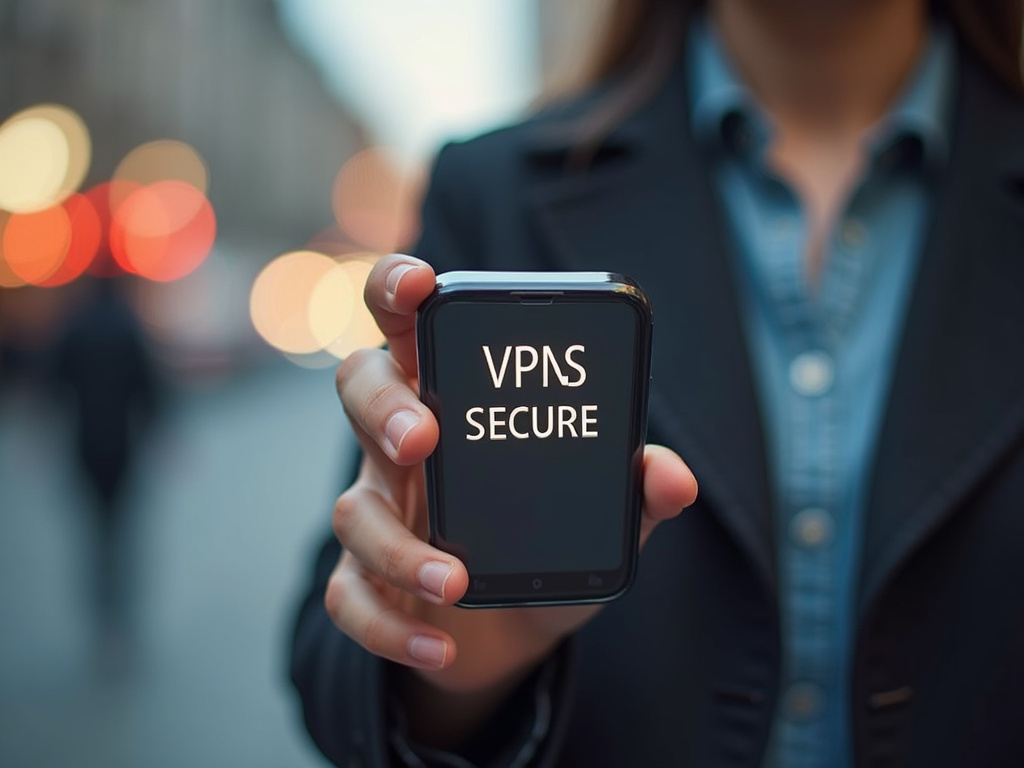VPNs for Traveling: Stay Secure Abroad

Table of Contents
- VPNs for Traveling: Stay Secure Abroad
- Understanding the Risks: Unsecured Wi-Fi and Data Vulnerabilities
- How VPNs Protect Your Data: Encryption and Secure Tunneling
- VPNs for Services: Enhancing Security and Privacy on Subscription Platforms
- The Future of VPN's in Subscription services: Evolution driven by Technology
VPNs for Traveling: Stay Secure Abroad
The modern traveler, armed with smartphones, laptops, and tablets, carries not just luggage but a digital trove of personal information. This data, encompassing everything from banking details to private communications, is increasingly at risk when connecting to unfamiliar and often unsecured Wi-Fi networks found in hotels, airports, cafes, and public spaces around the globe. Recognizing this vulnerability, savvy travelers are turning to Virtual Private Networks (VPNs) as an essential tool for ensuring 'data protection' and maintaining 'secure abroad'.
A VPN creates a secure, encrypted tunnel for your internet traffic, safeguarding your sensitive information from prying eyes and providing a safer, more private online experience. This article serves as a complete guide to understanding and utilizing VPNs for travel, exploring the benefits, features, and considerations necessary for selecting the best 'VPN for travelers' and leveraging 'international VPN' connections effectively. By mastering the use of VPNs, you can navigate the digital landscape of international travel with confidence, knowing that your privacy and security are well-protected.
In an era defined by seamless global connectivity, the allure of exploring new cultures, conducting international business, and staying connected with loved ones across borders has never been stronger. However, this enhanced mobility comes with inherent risks, especially concerning the security and privacy of our digital lives. While traversing different countries and continents, travelers routinely access public Wi-Fi networks, which, while convenient, are often breeding grounds for cyber threats.
These networks lack the robust security measures found in private, password-protected connections, making them vulnerable to hackers and data snoopers. Imagine checking your bank balance, booking flights, or sending confidential work emails on a public Wi-Fi network without any protection – your personal data becomes an open book for malicious actors. This is where a VPN steps in as a powerful safeguard.
By establishing an encrypted connection between your device and a remote server, a VPN acts as a shield, masking your IP address (your device's unique internet identifier) and rendering your data unreadable to potential eavesdroppers. With a VPN in place, the public Wi-Fi network effectively becomes a protected extension of your own private network. The rise of VPNs as a crucial travel companion isn't merely about avoiding hackers on public Wi-Fi.
It extends to broader issues of online privacy, freedom of expression, and access to information. Many countries have strict internet censorship laws, blocking access to certain websites, social media platforms, and news outlets. This can be a significant hindrance for travelers who rely on these resources for communication, information gathering, or even entertainment.
A VPN allows users to bypass these restrictions by routing their internet traffic through a server in a different location, effectively masking their true location and granting access to blocked content. Furthermore, some websites and services track users' locations to tailor content or even charge different prices based on geographic location. A VPN allows travelers to circumvent these practices by spoofing their location, ensuring fair access to information and services, and promoting a more level playing field in the digital world.
For the modern traveler who values both security and freedom, understanding and utilizing a VPN is no longer a luxury but a necessity. It's about reclaiming control over your digital footprint, ensuring your data remains secure, and accessing the information you need, regardless of where your journey takes you.
Understanding the Risks: Unsecured Wi-Fi and Data Vulnerabilities
The core functionality of a VPN lies in its ability to create a secure and encrypted tunnel, shielding your online activity from prying eyes. This is achieved through a process called encryption, which transforms your data into an unreadable format. When you connect to a VPN server, all data transmitted between your device and the server is encrypted using sophisticated algorithms.
This means that even if someone were to intercept your data, they would be unable to decipher it without the correct decryption key. Imagine sending a letter written in a secret code – only the intended recipient with the codebook can understand the message. Similarly, a VPN encrypts your data, ensuring that only your device and the VPN server can understand the information being transmitted.
This is particularly vital when using public Wi-Fi networks, where your data is inherently more vulnerable to interception. Hackers often lurk on these networks, using packet sniffers to capture unencrypted data transmitted over the air. Without a VPN, your passwords, credit card details, and other sensitive information could be easily stolen.
Beyond encryption, a VPN also masks your IP address, which is a unique identifier assigned to your device by your internet service provider (ISP). Your IP address reveals your approximate location and can be used to track your online activity. By connecting to a VPN server, your IP address is replaced with the IP address of the VPN server, effectively hiding your true location and making it more difficult for websites, advertisers, and malicious actors to track you.
This is crucial for maintaining anonymity online and protecting your privacy. Suppose you're browsing online marketplaces or booking hotels. Without a VPN, these websites can track your location and potentially adjust prices based on your region.
With a VPN, you can spoof your location and potentially find better deals or avoid being targeted with location-specific advertising. The combination of encryption and IP masking significantly enhances your online security and privacy, making it much harder for anyone to monitor your online activity or steal your personal information. Furthermore, the choice of encryption protocol used by the VPN is a critical factor to consider.
Some common protocols include OpenVPN, IKEv2, and WireGuard. OpenVPN is a highly regarded open-source protocol known for its strong security and reliability. IKEv2 is another popular protocol that offers fast speeds and stable connections, particularly on mobile devices.
WireGuard is a newer protocol that promises even faster speeds and improved security. When selecting a 'travel VPN', ensure it supports one of these robust encryption protocols to provide adequate protection for your data. In addition to the encryption protocol, the length of the encryption key also plays a significant role in the strength of the encryption.
Longer keys provide stronger encryption, making it more difficult for hackers to break. Look for VPNs that use AES (Advanced Encryption Standard) encryption with a key length of 256 bits, which is considered virtually unbreakable. This level of encryption provides a high degree of security, ensuring that your data remains protected even against sophisticated attacks.
By understanding the underlying principles of encryption and IP masking, you can better appreciate the value of a VPN and make informed decisions about your online security strategy while traveling 'secure abroad'.
How VPNs Protect Your Data: Encryption and Secure Tunneling
Selecting the right 'VPN for travelers' involves a comprehensive evaluation of several key factors that directly impact its effectiveness and suitability for your specific travel needs. A primary consideration is the server network. A VPN with a vast global network of servers provides greater flexibility, allowing you to connect to servers in various locations around the world.
This is particularly useful for bypassing geo-restrictions, accessing content specific to certain regions, and optimizing your connection speed. If you frequently travel to different countries, a VPN with servers in those regions will ensure a more reliable and faster connection. The number of servers available is also important.
A larger number of servers reduces the likelihood of congestion and overcrowding, which can lead to slower speeds and less stable connections. For consistent and optimal performance, prioritize VPNs boasting a widespread and robust server infrastructure. Speed is another crucial factor, especially if you rely on your VPN for streaming videos, downloading files, or engaging in other bandwidth-intensive activities.
A slow VPN can significantly degrade your online experience, making it frustrating to use the internet. Always research speed test results and read user reviews to assess the speed performance of different VPN providers. It's also important to note that the speed of your VPN connection can be affected by various factors, including the distance to the server, the server load, and your internet connection speed.
Choose a VPN that offers a range of server locations so that you can connect to a server that is closer to your actual location, minimizing latency and maximizing speed. Furthermore, consider VPNs utilizing modern and efficient protocols like WireGuard that are designed for speed. Security features are paramount when selecting a VPN, particularly for 'data protection'.
Beyond strong encryption, look for additional security measures such as a kill switch. A kill switch automatically disconnects your internet connection if the VPN connection drops unexpectedly. This prevents your data from being exposed in the event of a VPN failure.
DNS leak protection is also essential. Your Domain Name System (DNS) requests translate website names into IP addresses. Without DNS leak protection, your DNS requests might be routed through your ISP's servers, revealing your browsing activity even when connected to a VPN.
Ensure that your VPN has built-in DNS leak protection to keep your online activity private. Split tunneling is another useful feature that allows you to choose which apps or websites use the VPN connection and which ones use your regular internet connection. This can be helpful for optimizing speed and performance, as you can route only sensitive traffic through the VPN while allowing less critical traffic to bypass it.
Finally, consider the VPN's jurisdiction. The laws and regulations of the country where the VPN provider is based can have significant implications for your privacy and security. Some countries have mandatory data retention laws, requiring VPN providers to store user logs for a certain period.
Choose a VPN based in a privacy-friendly jurisdiction with no mandatory data retention laws, such as Switzerland or Panama. A clear and transparent privacy policy is also a must-have, outlining exactly what data the VPN provider collects and how it is used. Scrutinize the user agreement and privacy policies and carefully evaluate trust when choosing a VPN to 'secure abroad'.
By considering these factors – server network, speed, security features, and jurisdiction – you can make an informed decision and select the best 'VPN for travelers' to protect your online privacy and security while on the go.
VPNs for Services: Enhancing Security and Privacy on Subscription Platforms
The practical applications of a 'travel VPN' extend far beyond simple anonymity and accessing geo-restricted content; it's a versatile tool that significantly enhances your digital security and convenience in a variety of travel-related scenarios. Consider the common situation of accessing sensitive information, such as your online banking account, while connected to a public Wi-Fi network. Without a VPN, your login credentials, account details, and transaction history are all vulnerable to interception by hackers who may be lurking on the same network.
A VPN encrypts all data transmitted between your device and the bank's servers, making it virtually impossible for anyone to steal your information. This provides peace of mind knowing that your financial transactions are secure, even when using public Wi-Fi. Similarly, when booking flights, hotels, or rental cars online, you are typically required to enter personal information such as your name, address, credit card details, and passport number.
A VPN prevents this information from being intercepted by malicious actors or tracked by websites and advertisers. Many websites use tracking cookies and other techniques to monitor your browsing activity and create a profile of your interests and preferences. This information can be used to target you with personalized advertising or even to adjust prices based on your perceived willingness to pay.
A VPN masks your IP address and prevents websites from tracking your location, helping you to avoid these practices and maintain your privacy online. The 'international VPN' becomes invaluable in countries with restrictive internet censorship policies. Many governments block access to social media platforms, news websites, and other online resources that they deem to be politically sensitive or harmful.
This can severely limit your ability to stay informed, communicate with friends and family, and access essential services. With a VPN, you can bypass these restrictions by connecting to a server in a different country, effectively masking your true location and granting access to blocked content. For journalists, human rights activists, and other individuals who rely on access to information for their work or personal safety, a VPN can be a lifeline.
They can use it to communicate securely with sources, access sensitive information, and report on events without fear of government surveillance or censorship. Even for recreational travelers, access to social media and streaming services can be important for maintaining a sense of normalcy and staying connected with their social networks. Bypassing censorship is therefore about convenience and, in some cases, critical access.
Beyond security and access, a VPN can also enhance your online experience by circumventing bandwidth throttling. Internet service providers (ISPs) often throttle bandwidth for certain types of traffic, such as streaming video, peer-to-peer file sharing, or online gaming. This can result in slow loading times, buffering issues, and a degraded overall experience.
By encrypting your traffic, a VPN prevents your ISP from identifying the type of traffic you are sending, making it more difficult for them to throttle your bandwidth. This can result in faster speeds and a smoother online experience, especially when streaming videos or downloading large files. This becomes extremely valuable when using a 'VPN for travelers' wanting to enjoy media while utilizing potentially throttled hotel or public Wi-Fi networks.
Finally, consider using a VPN to protect your privacy when using public computers in internet cafes or business centers. These computers may not be properly secured, and your login credentials or browsing history could be compromised if you are not careful. A VPN encrypts your data and prevents your activity from being tracked on the public computer.
The Future of VPN's in Subscription services: Evolution driven by Technology
In conclusion, the use of a 'travel VPN' has transitioned from a niche luxury to an essential tool for the modern, globally connected traveler. The inherent risks associated with public Wi-Fi networks, coupled with increasing concerns about online privacy and censorship, make a VPN a critical component of any secure travel strategy. By encrypting your data, masking your IP address, and bypassing geo-restrictions, a VPN empowers you to navigate the digital landscape of international travel with confidence and peace of mind.
Prioritizing 'data protection' through a reputable VPN is not merely a technical consideration but a fundamental aspect of responsible digital citizenship in an interconnected world. Choosing the best 'VPN for travelers' necessitates careful evaluation of server network size, speed, security features (including encryption protocols, kill switches, and DNS leak protection), jurisdiction of the VPN provider, and user-friendliness of the application. Opting for a service based in a privacy-respecting jurisdiction and adhering to a transparent, no-logs policy is paramount for ensuring your data remains private and secure.
The practical applications of a VPN extend far beyond simply accessing blocked content. They include safeguarding sensitive financial transactions on public Wi-Fi, protecting personal information when booking travel arrangements online, circumventing bandwidth throttling by ISPs, and ensuring privacy when using public computers. By incorporating a VPN into your travel routine, you're taking a proactive step towards protecting your digital identity and mitigating the risks associated with online activity in unfamiliar environments.
The importance of 'secure abroad' cannot be overstated. As international travel becomes increasingly commonplace, the need for robust online security measures grows proportionately. A VPN provides a critical layer of protection against cyber threats, ensuring that your data remains safe and your online experience is seamless, regardless of your location.
Looking ahead, the role of VPNs in international travel is only likely to become more significant. As cyber threats evolve and governments increasingly exert control over the internet, VPNs will continue to serve as a vital tool for protecting online freedom and ensuring access to information. The future may see even more sophisticated VPN technologies emerge, offering enhanced security features, faster speeds, and more seamless integration with mobile devices and other travel gadgets.
Staying informed about the latest developments in VPN technology and adopting best practices for online security are essential for navigating the ever-changing digital landscape of international travel. Investing in a reliable 'international VPN' is an investment in your personal security, privacy, and peace of mind. Ultimately, the decision to use a VPN boils down to prioritizing your digital well-being.
In a world where our lives are increasingly intertwined with technology, protecting our online privacy and security is no longer optional – it's a necessity. By taking the time to research and select a reputable VPN, you can embark on your travels with confidence, knowing that your data is safe, your online activity is private, and your access to information is unrestricted. Embrace the power of a 'travel VPN' and unlock a more secure, private, and enjoyable experience, reclaiming control over your digital journey and navigating the globe with digital confidence.
Integrating a VPN into your travel plans isn't just about technology; it's about empowering yourself in a world where digital boundaries are constantly shifting and evolving.
Stay Updated
Get the latest VPN news, tips, and exclusive deals to your inbox.




